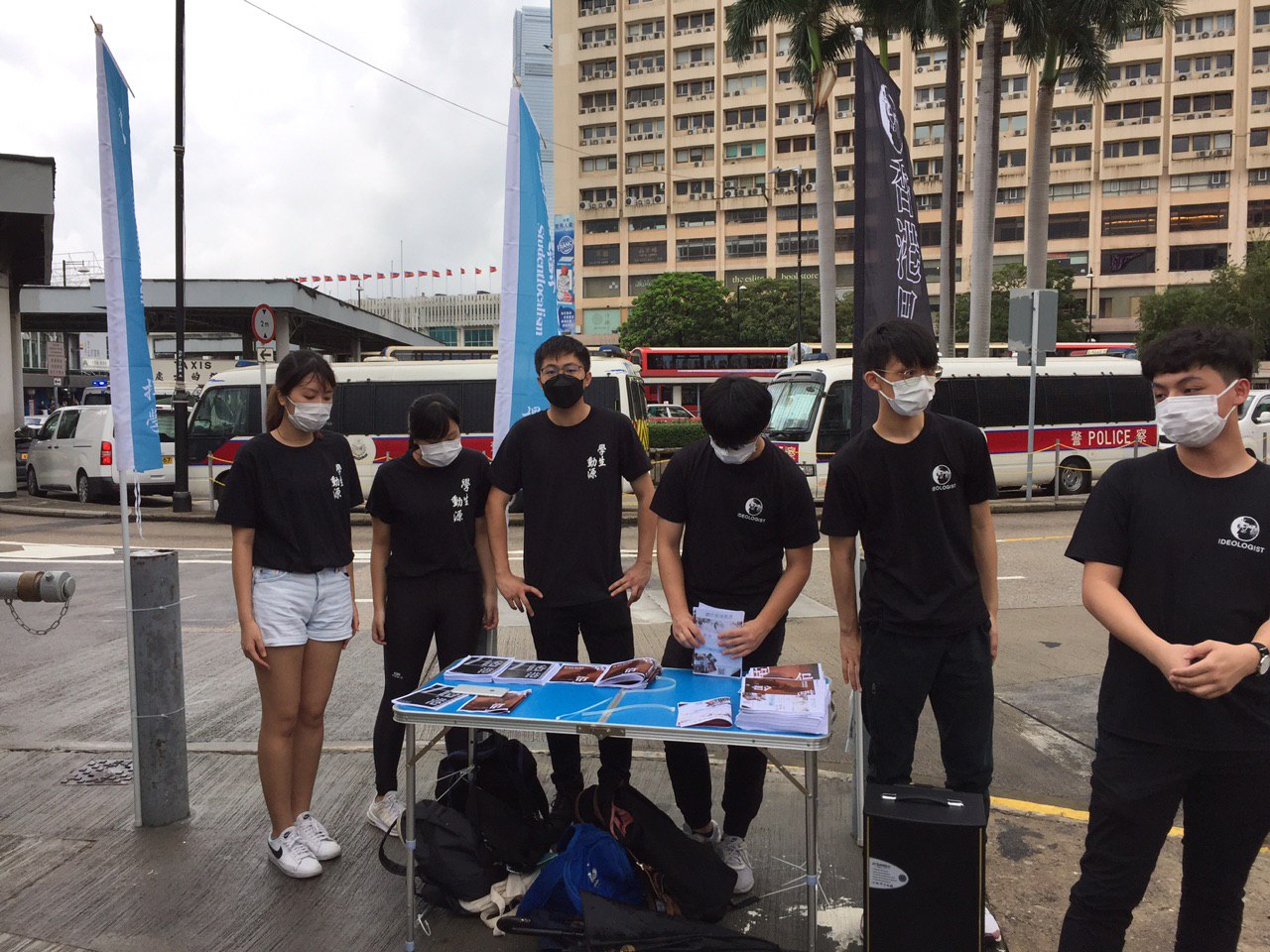Under Hong Kong’s new national security law, police arrested four former members of disbanded pro-independence group Studentlocalism on July 29 for suspicion of inciting secession through social media.
The arrested students, aged 16–21, included former Studentlocalism leader Tony Chung, according to the South China Morning Post.
All four students were released on bail on July 31, along with a travel ban restricting them to the city for the next six months. They are required to report back to authorities in late August.
Chung said the police searched his home and took unrelated items, such as his school report cards, when there have yet to be charges against him.
Studentlocalism started in 2016, advocating Hong Kong independence by “courageous and militant resistance.” It took former members of the disbanded group Scholarism under its wing. The South China Morning Post reported former Scholarism leaders Joshua Wong and Nathan Law were recently disqualified from political candidacy and exiled, respectively.
Studentlocalism, which had 12–30 members and a 17,000-strong following on Facebook, disbanded hours before the new security law came into effect.
Li Kwai-wah, senior superintendent of the National Security Department, said during a press conference law enforcement extends to social media, where Studentlocalism’s posts advocated for Hong Kong independence.
“Don’t think you can escape from the responsibility in cyberspace and commit crimes,” Li said.
The Hong Kong national security law, passed and signed on June 30, went into effect at 11 p.m. According to The Guardian, less than 40 days passed between the plan to impose the law and its implementation.
The first arrests under the new law took place amid protests against its implementation the next day, the 23rd anniversary of the 1997 handover of Hong Kong. The event symbolized both the end of British rule in the former colony and marked the region’s “one country, two systems” principle that guaranteed a 50-year long “high degree of autonomy, except in foreign and defense affairs,” according to the joint declaration made by China and the United Kingdom.
The Chinese government said past pro-democracy protests necessitated the new law as it increases national security. Authorities said it is intended to “target only a minority of troublemakers,” as reported by Al Jazeera.
The law’s passage received international backlash prompting several countries to suspend their extradition treaties with Hong Kong, while the U.K. offered a route to citizenship to British overseas nationals. Despite criticism, Chinese officials insist foreign interferences concerning Hong Kong affairs are unwelcome, according to TIME.
Through the new law, the National Security Department operates outside of Hong Kong’s jurisdiction and therefore is not subject to local laws and court reviews.
“This first coordinated police operation to enforce Hong Kong’s national security law is a significant, and alarming, moment for the right to freedom of expression in the city,” said Nicholas Bequelin, Amnesty International’s Asia-Pacific regional director. “That four young people could potentially face life imprisonment on the basis of some social media posts lays bare the draconian nature of the national security law.”
